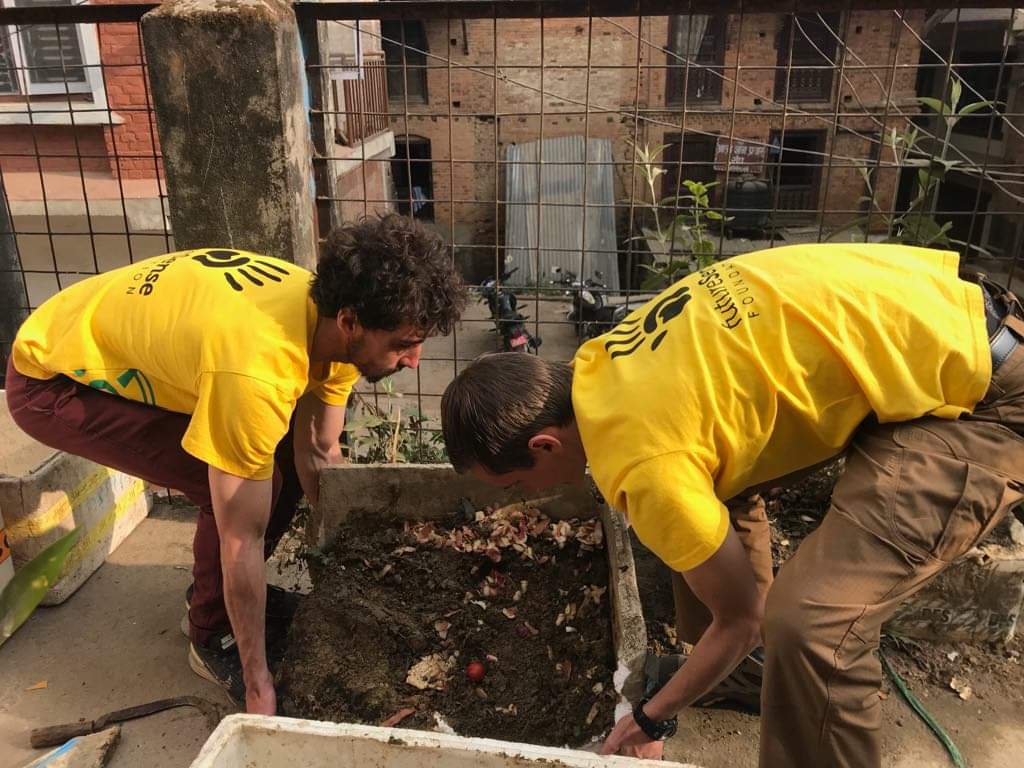Tackling Environmental Issues in Nepal
Are you concerned about climate change? Do you want to make a difference beyond just your own personal sustainable choices? Do you want to help tackle global climate change?
If you answered yes, yes and yes, you should go right ahead and reserve yourself a spot in our Nepal Sustainability Challenge!
We created our environment volunteering challenges for those of you who are particularly passionate about saving our planet. After all, being a global citizen also encompasses looking after our environment. We think that now more than ever, we should be doing our bit to help improve the global environment and encourage each other to live more sustainable lives. That is exactly what our environment volunteering programs do.
In Australia, we are fortunate to have access to information that can help us combat climate change. We are lucky to receive an education that teaches us sustainable alternatives to current harmful practices. Yet in the destinations we work in, these communities often do not have this privilege. We want to help educate these communities about their environment and encourage them to take on lifestyle choices that are sustainable for their area!
Environmental Challenges in Nepal
In Nepal, our sustainability program addresses the United Nations Sustainable Development Goals, in particular number 13: 'Climate Action' and number 15: 'Life on Land'. In the Kathmandu Valley where we work, the temperature has been warming and summer seems to have been extending for longer. Locals have also reported erratic rainfall which makes their agricultural industry unpredictable and flooding is becoming more intense, threatening property and life for all in the valley.
In addition to this, local communities lack waste management and recycling systems. This means that piles of rubbish are left on the street and they're often set alight to get rid of them. Burning plastics is not only a an environmental hazard, but a significant health issue as well.
These issues are threatening the livelihoods and food security of those in the Kathmandu Valley. But there is a way to change this, and it's through education. When you volunteer on our Nepal Sustainability Challenge you will be educating the local community about key environmental issues and helping them find creative solutions to address these.
The Nepal Sustainability Challenge
On this volunteering program you'll spend two weeks working with the local community. This includes running workshops for children, teachers and sometimes parents about climate and sustainability. You can also get more hands on in your volunteer work helping to build veggie gardens, rubbish clean-ups or even creating different bins to encourage recycling. There are many fun ways to encourage sustainability in the Kathmandu Valley, and we want you to contribute your own unique and exciting way.
While you might be doing something as simple as teaching local children about the water cycle to enhance their understanding of their own environment or educating locals on sustainable alternatives they can add to their daily routines, your volunteer work will have a huge impact. Knowledge is power, and the knowledge that you provide this community will spread as children tell their parents, parents tell their friends and soon entire communities will know how to look after their local environment and live more sustainably!
Thinking about climate change can often feel overwhelming, like there is nothing that can be done. But we think that even the smallest actions can make a huge difference, and your volunteer work on the Nepal Sustainability Challenge will do just that! Bit by bit, community after community will be empowered with crucial knowledge that will not only help offset the effects of climate change, but it will improve the livelihoods of the locals themselves.
Inspired? Check out our Nepal Sustainability Challenge.
Learn more about Challenges Abroad, our charity The FutureSense Foundation and how we keep our volunteer programs ethical and sustainable.





